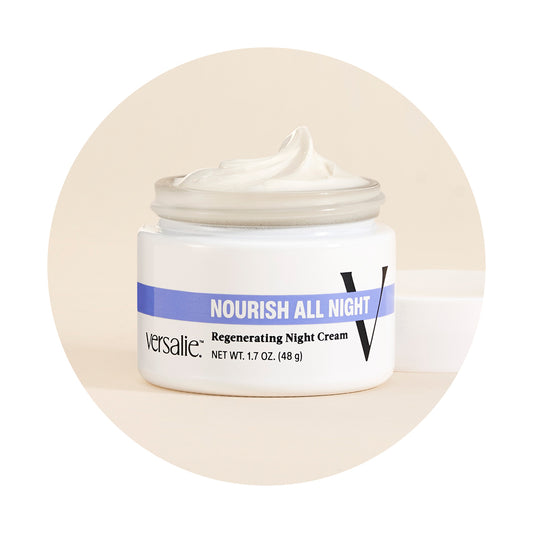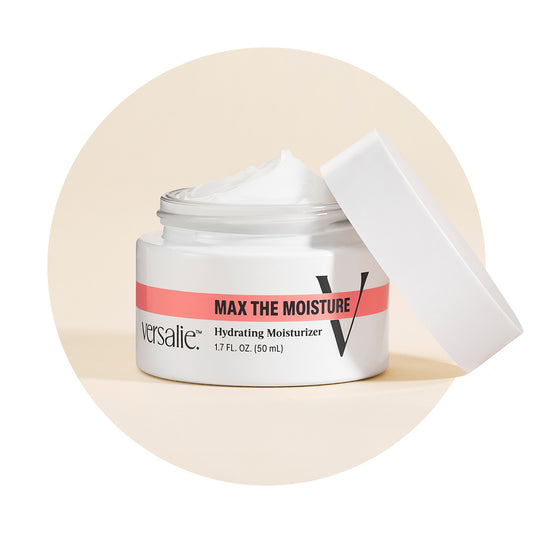I just visited a periodontist for the first time. At my last routine cleaning, my dentist noticed a few deep pockets in my gums that hadn’t been there before and recommended I go and have them checked out. I didn’t understand how they got there since I am a dedicated daily flosser and brush my teeth for 2 minutes, 2 times each day.
It wasn’t until I started writing this article that I realized that some of my new gum issues could in fact be related to menopause. The good news for me is that getting treated early is great prevention from the gums getting any worse. Here’s hoping….
Turns out, issues with your mouth and teeth are yet another set of symptoms associated with the menopause transition — and ones that you don’t hear much about. But the relationship between estrogen and oral health is well established. During the menopause transition, you may start to experience dry mouth, tooth pain, burning in your mouth, swollen or bleeding gums, and even changes in how food tastes. In addition, hormone changes may also contribute to bone loss in your teeth.
But fear not, there are things you can do to take care of your mouth to prevent some of these challenges. Read on to learn more and talk to your dental care team with any questions or concerns.
Dental problems and oral health challenges
Menopause and dry mouth
One of the most common oral symptoms that happens during menopause is dry mouth, also known as xerostomia (zeer-oh-STOE-me-uh). Estrogen is involved in saliva production, and when estrogen levels drop during menopause, the amount of saliva in your mouth may decrease.
Saliva plays a crucial role in keeping your mouth healthy by neutralizing acids, washing away leftover food particles, and preventing excess bacteria from growing in your mouth. Without enough saliva, you may have a higher risk of cavities, gum disease, and bad breath.

Gum disease
Another dental concern that you may face during menopause is gum disease, also called periodontal disease. Estrogen helps to widen blood vessels, enabling good blood flow in your body. So, as estrogen declines, so can the blood supply to the gums. With less blood flow, the gums are not as good at fighting bacteria and plaque build-up on the teeth and gums. These issues can lead to symptoms such as gums that bleed, swell, or feel sore. If left untreated, gum disease can become more severe and may cause tooth loss.
Believe it or not, poor gum health can also affect your heart health. If there are excess bacteria in your gums, that bacteria can travel through your body to your heart vessels and make them inflamed, leading to heart disease.
Bone loss and menopause teeth shifting
Estrogen plays a big role in helping keep bones strong throughout the body, including the jawbone. As estrogen levels drop during menopause, bone density decreases. This can lead to a condition called osteoporosis. If the jawbone is affected, your teeth may move or, in some cases, fall out.
Burning mouth syndrome and menopause
Some people going through menopause may also develop a condition called burning mouth syndrome. You may have sudden burning in your mouth, or it could develop over time. If you have burning mouth syndrome, your mouth may feel like it’s burning or tingling. Sometimes this feeling changes the way things taste. While we don’t know exactly what causes this syndrome, hormonal changes during menopause are believed to play a role.
How to take care of your oral health
Now that we've explored the dental challenges that menopause can cause, let's explore some proactive ways you can work to keep your mouth healthy during this time of life.
Regular dental checkups
Regular dental checkups are important during menopause. Dentists can find early signs of gum disease, cavities, and other oral health issues. They can give you advice on how to manage dry mouth and other menopause-related oral symptoms. Dentists can also refer you to specialist dentists, like periodontists, who specialize in gum disease, or endodontists, who take care of tooth pain and tooth tissue repair to treat more complex issues early on.
Most dental insurance plans typically cover regular dental check-ups two times per year. But, if you don’t have dental insurance, there are other ways to get good dental care. Check out your local community health center, veterans’ affairs clinics, and local dental schools. They may be able to provide low-cost or free care.

Good oral hygiene
Having a good oral hygiene routine is important. This means brushing at least twice a day with fluoride toothpaste, flossing daily, and using an antiseptic mouthwash if recommended by your dentist. Good oral hygiene can help lower your risk of cavities and gum disease.
Stay hydrated
To fight dry mouth, you should stay hydrated by drinking water throughout the day when you feel thirsty. There are also mouth washes, sugar-free chewing gum, and sugar-free lozenges that can help with dry mouth and help you produce the proper amount of saliva in your mouth.
Bone health
To support overall bone health, including the jawbone, you should do weight-bearing exercises like walking, jogging, and weightlifting. Eat a diet with lots of calcium, like low-fat dairy products, fortified plant-based milk, leafy greens, and fortified cereals. If recommended by your healthcare provider, you can also take a calcium and/or vitamin D supplement. These simple actions can help reduce the risk of osteoporosis and the potential tooth mobility that might come with it.
Menopause is a time of change in a person’s life, marked by hormonal and physical changes that can affect various aspects of health, including dental wellbeing. It's important to be aware of and address the oral health challenges that may arise during menopause, such as dry mouth, gum disease, and bone loss.
By staying proactive through regular dental checkups, good oral hygiene practices, and lifestyle choices that support overall health, you can maintain a bright smile and enjoy a higher quality of life during and after menopause. Remember, a healthy smile reflects overall wellbeing, and it's never too late to prioritize your dental health.








